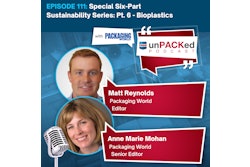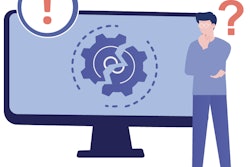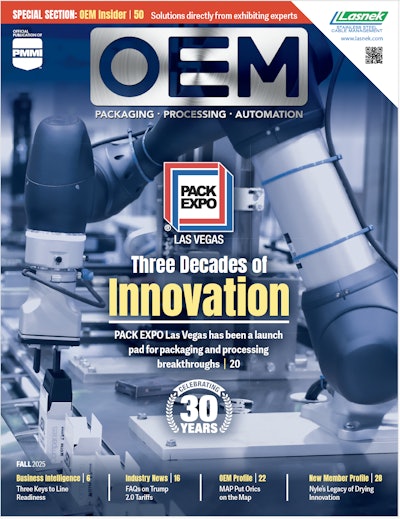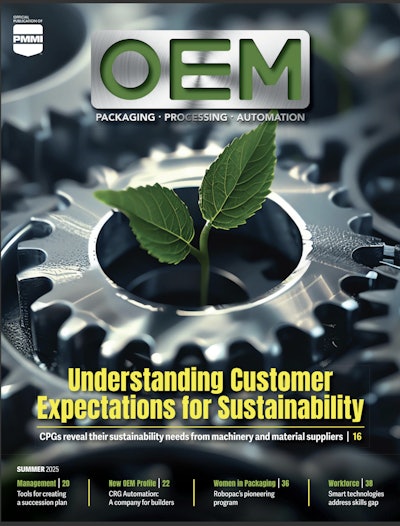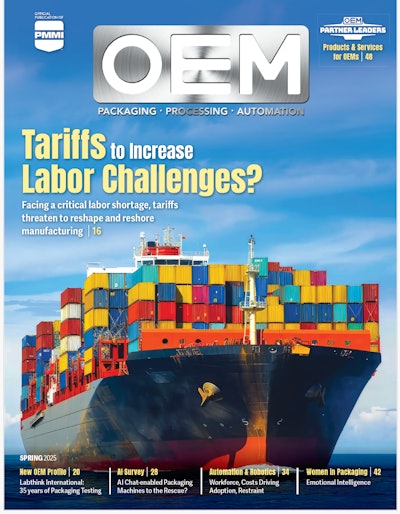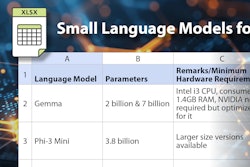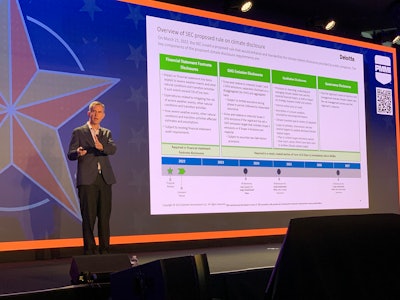
If environmental, social, and governance (ESG) reporting is not already on your radar, it soon will be. ESG data reporting, which allows stakeholders to assess a company's performance in key areas such as sustainability and responsibility, can drive investment decisions, inform risk management, and impact reputation management – all critical factors that impact the bottom line.
“The Security and Exchange Commission, the European Union, and the rest of the international communities are, within a year, looking at regulations that would impact every public company around the world,” said John Vickers, managing director of energy & resources at Deloitte and Touche LLP, during a presentation at the PMMI Executive Leadership Conference in San Antonio in April.
Vickers told the OEM executives that as ESG data reporting emerges as the new normal, manufacturers will need to pay closer attention to all upstream and downstream impacts on the environment and society, not only for themselves but also for their CPG customers.
The E in ESG
Many manufacturers are already laser-focused on the "E" in ESG: the environment. At a time when sustainability is the talk of the industry, many investors and stakeholders are also pushing for greater disclosure from public companies on their environmental data.
On top of that, the Security and Exchange Commission (SEC) is expected to release its ESG guidelines for measuring and reporting greenhouse gas emissions later this year. While the SEC has not yet endorsed specific reporting protocols, it is encouraging U.S. companies to increase transparency and consistency in voluntary reporting, using the Greenhouse Gas (GHG)Protocol, widely recognized as the standard for tracing greenhouse gas emissions, as the benchmark.
In the European Union (EU), it’s a different story. Beginning this year, all manufacturing companies with more than 500 employees are required to report their ESG data as part of a directive to standardize ESG data reporting across the EU. That mandated regulation is already impacting CPGs in Europe who use equipment made in the U.S. as part of their compliance for reporting on Scope 3 of the GHG Protocol (see sidebar below).
“Your European customers or operations are dealing with this right now, trying to figure this out,” said Vickers.
The data challenge
As ESG reporting becomes more widespread globally, manufacturers will face challenges in collecting and managing complex internal and external data. “It comes down to the traceability,” Vickers said. “Understanding the traceability and locking down that data to get to that single source of truth.”
Reporting on Scope 3 emissions poses a particular challenge for manufacturers, as it includes emissions from various company activities, including business travel, employee commuting, purchased goods and services, transportation and distribution, capital goods, investments, and franchises.



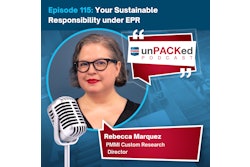

![Un Pac Ked Podcast Social Episode #114[92]](https://img.oemmagazine.org/files/base/pmmi/all/image/2023/04/UnPACKed_Podcast_Social___Episode__114_92_.644bd919e263e.png?auto=format%2Ccompress&bg=fff&fill-color=fff&fit=fill&h=167&q=70&w=250)
